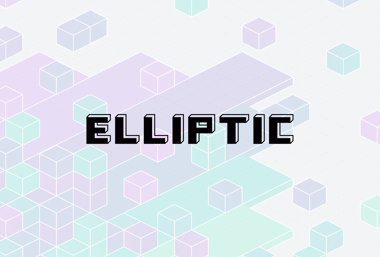
Professionals working with children given ‘vital guidance’ to tackle threat of AI-generated child sexual abuse material
New aid created by the NCA and IWF raises awareness of the risks to children caused by the ‘weaponised’ technology.
Published: Sun 2 Apr 2017
London, April 3, 2017 – Internet Watch Foundation (IWF) today releases its latest global data on the identification, hosting, distribution and removal of child sexual abuse images and videos. The report reveals Europe now hosts the majority of child sexual abuse webpages (60%), with North America moving to second place (37%). In contrast, UK now hosts less than 0.1% of child sexual abuse imagery globally, and this is due to the zero tolerance approach the internet industry in the UK takes.
Among the key findings of the report, IWF found a 258% increase in the number of websites using a new generic Top Level Domain (gTLD), and dedicated to the distribution of child sexual abuse imagery compared to 2015.
Furthermore, 94% of URLs were hosted on a free-to-use service where no payment was required to create an account or upload the content.
Criminals are increasingly using masking techniques to hide child sexual abuse images and videos on the internet and leaving clues to paedophiles so they can find it – hidden behind legal content. In 2016, The IWF found 1,572 websites using this method to hide child sexual abuse imagery. This is an increase of 112% on the 743 disguised websites identified in 2015.
Further key findings include:
Recognising that the internet has no borders, IWF opened additional reporting portals* in 16 countries, offering more people worldwide the chance to rid the internet of this content.
Susie Hargreaves OBE, IWF CEO, said: “The shift of child sexual abuse imagery hosting to Europe shows a reversal from previous years. Criminals need to use good internet hosting services which offer speed, affordability, availability and access. Services which cost nothing, and allow people to remain anonymous, are attractive.
“The IWF offers a quick and effective system of self-regulation; we work with our Members to make the internet safer and we do this on the global stage.
“Whilst it’s positive that the UK continues to remain hostile to child sexual abuse material, the global picture isn’t good. We’ve opened reporting portals across the globe with more planned. In other countries, internet companies are exploited and, worst of all, children who have been sexually abused are further exploited.
“Internet companies and large businesses who are doing nothing, or too little, to address online child sexual abuse imagery need to step up and work with us.”
Anyone can report suspected child sexual abuse images and videos anonymously at www.iwf.org.uk
ENDS
The IWF releases its Annual Report 2016 on 3 April exclusively online. It will be found here: https://annualreport.iwf.org.uk It shows the latest global trends and analysis of child sexual abuse content for 2016.
ends
Contact:
Emma Hardy, Director of External Relations [email protected] +44 (0) 1223 203030 or +44 (0) 7929 553679.
We make the internet a safer place. We help victims of child sexual abuse worldwide by identifying and removing online images and videos of their abuse. We search for child sexual abuse images and videos and offer a place for the public to report them anonymously. We then have them removed. We’re a not for profit organisation and are supported by the global internet industry and the European Commission.
For more information please visit www.iwf.org.uk. *
16 countries outside of the UK now have customised IWF Portals. They provide a safe and anonymous way to send reports directly to IWF analysts in the UK. The analysts then assess the reports and take action to have the content removed.
In December (2016), an anonymous report was made through the Indian Portal to IWF. It showed baby girls and baby boys of a range of ethnicities. Worst of all, some of the most severe abuse was happening to them; rape and sexual torture.
Although someone in India made the report, the webpage was actually hosted in Russia and contained over 200 videos. The time between the report being sent from India, to the time IWF notified the Russian Hotline was 1 hour 7 minutes. The Russian Hotline acted swiftly; the content was removed in less than 24 hours.
The IWF is part of the UK Safer Internet Centre, working with Childnet International and the South West Grid for Learning to promote the safe and responsible use of technology.

New aid created by the NCA and IWF raises awareness of the risks to children caused by the ‘weaponised’ technology.

Partnership will strengthen efforts to stop criminals profiting from the sale of child sexual abuse imagery

The Internet Watch Foundation has joined with a consortium of partners to develop the Artemis Survivor Hub (ASH) – a revolutionary, victim-focused response to online child sexual exploitation.